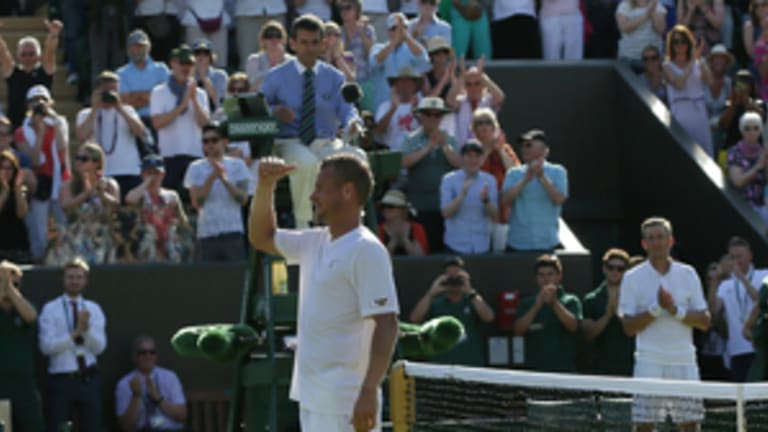The Fanatics, those bright-yellow tennis nuts from Down Under, were in fine form on Day 1 at Wimbledon. They had helped push their aging hero, Lleyton Hewitt, to the brink of victory over Jarkko Nieminen on Court No. 2, and they had come up with a few new chants along way. Now they were taking a moment to gloat. As Hewitt sat down on the sideline after breaking Nieminen’s serve to make it 4-3 in the fifth set, the Fanatics roared gleefully, “We’re only here for two more games!”
It was a cocky statement, but you could understand their confidence. Hewitt was 5-0 against Nieminen, and while the 34-year-old Rusty was well past his prime, he wasn’t much farther over the hill than his 33-year-old opponent. Each man had annnounced before the tournament that this would be his last Wimbledon. Didn’t it make historical sense that the journeyman Nieminen would take his final bow before Hewitt, a former No. 1 and the 2002 Wimbledon champion?
The answer, to those who have watched Hewitt over the years, and especially over recent years, was: Not necessarily. The undersized, red-faced Aussie, who has been on tour for more than half of his life, will always be a symbol of competitiveness, fighting spirit, and the sporting ideal. Even today, he bounced back from a 0-6 fourth set to lead in the fifth. But as the years have gone by, Hewitt has also come to represent another side of sports: The fragility, both physical and mental, that comes with age.

